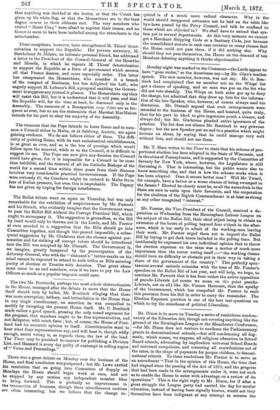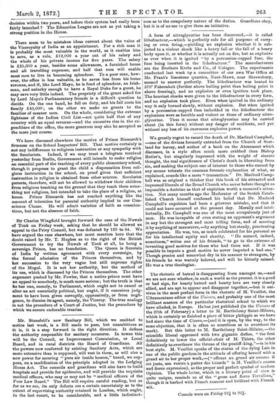Mr. Dixon is to move on Tuesday a series of
resolutions condem- natory of the Education Act, though not covering anything like the ground of the Birmingham League or the Manchester Conference, —for Mr. Dixon does not venture to condemn the Parliamentary grants to denominational schools,—but still condemning all dog- matic, which means, we suppose, all religious education in School Board schools, advocating by implication universal School Boards and universal compulsion, and censuring all contributions out of the rates, in the shape of payments for pauper children, to denomi- national schools. To these resolutions Mr. Forster is to move as an aniendment "That in the opinion of this House, the time that had elapsed since the passing of the Act of 1870, and the progress that had been made in the arrangements under it, were not such as to enable the House to enter with advantage on a review of its operations." This is the right reply to Mr. Dixon, for if after a great struggle the League party had carried the day for secular education, instead of having been signally beaten, would not they themselves have been indignant at any attempt to reverse the



































 Previous page
Previous page